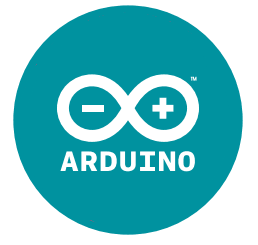Six Reasons to Target Larger Clients
Afraid of going after larger clients? Here are six good reasons to get over your fear.
You Have More Work than You Can Handle
A common objection in the world of advertising sales is, “I have more work than I can handle.” Many times this is an excuse to avoid talking to a sales person. But in some situations, it’s actually true.
If you have more work than you can comfortably handle, the simple truth is you’re not charging enough. Raising your prices will often result in less clients, but more revenue and profit.
But the problem is, your current client base may not be able to support your higher fees. Targeting clients with bigger marketing budgets is like giving yourself a raise.
You’re Starving for Work
Conversely, if you’re starving for clients, why not invest your energy and effort towards landing bigger ones?
The Pareto Principle
You probably know this as the 80/20 Rule, which states that that roughly 80 percent of effects come from 20 percent of causes. In business, a common rule of thumb is that “80 percent of your revenue comes from 20 percent of your clients.” While the mathematics may not work out to that exact ratio, the principle holds true.
The reason this is often the case is because the top 20 percent of clients are generally the ones who spend the most money.
Larger Clients are Easier to Prospect
Many freelancers are afraid to call big companies; yet, I find it less intimidating to prospect large firms than mom-and-pop businesses.
In my experience, cold-calling a marketing department is one of the most enjoyable cold-calls you can make. That’s because my best prospecting results occurred whenever I talked to someone who understands marketing. And that typically isn’t the case with most small businesses.
The average small business owner wears most, if not all the hats—and the “marketing” hat is usually the one he’s least comfortable with. Not only are you encroaching onto his already overcrowded schedule when you call, you’re also an uncomfortable reminder of an area of his business he’s not got a handle on.
Not so with a larger organizations. These often have a person or an entire department whose job it is to find ways to increase sales and revenue. Show them how you can help them accomplish that, and you’ll find them more than willing to converse with you.
Larger Clients are More Likely to Need Ongoing Work
It’s not uncommon for a company to be more than one business under the same roof. One of our largest clients was a property development company with a chain of storage units which they operated as a wholly-owned subsidiary. That means it was an entirely separate business entity, with its own brand, website, and marketing needs. Get the picture?
Larger Clients Don’t Have as Many In-House Resources as You Think
In the wake of the recent recession, companies are still struggling, and bigger ones don’t have as much in-house talent as they used to.
A common business reaction to an economic downturn it to cease all marketing and advertising. For larger organization, that might mean laying of an entire marketing department (including web designers and programmers). Now that things are picking up again, many of these companies may not have had time to restaff, or have decided to outsource, which may equate to an opportunity for a freelancer such as yourself.
A lot of larger companies never had an in-house design team to begin with. I’ve found this especially true in the manufacturing sector, where the general manager is responsible for marketing, but must rely on outside resources to get it done.
Larger, better-paying clients can be lucrative to your businesses, especially if most of the competition is shying away from them. So what are you waiting for?
Next week: How to Land Your First Big Client.
Frequently Asked Questions about Targeting Larger Clients
Why should I target larger clients for my business?
Larger clients can provide a significant boost to your business. They often have more resources and a larger budget, which can lead to larger contracts and more revenue for your business. Additionally, working with larger clients can enhance your company’s reputation and credibility in the market, attracting even more clients.
How can I approach larger clients effectively?
Approaching larger clients requires a strategic and well-planned approach. You need to understand their needs, challenges, and goals. Tailor your pitch to address these points and demonstrate how your product or service can provide a solution. Building a strong relationship and trust is also crucial when dealing with larger clients.
What strategies can I use to retain larger clients?
Retaining larger clients requires providing exceptional service and continuously adding value. Regular communication, understanding their evolving needs, and adapting your services accordingly are key strategies. Also, larger clients appreciate proactive problem-solving and innovative ideas that can help their business grow.
How can I compete with larger firms for bigger clients?
Competing with larger firms requires showcasing your unique value proposition. Highlight your expertise, personalized service, flexibility, and innovative solutions. Also, building strong relationships and providing exceptional customer service can give you a competitive edge.
How can I ensure that my larger clients get the attention they need?
Larger clients often require more attention and personalized service. Assign a dedicated account manager or team to handle their needs. Regular meetings, updates, and prompt responses to their queries can ensure they feel valued and well-served.
What are the challenges of working with larger clients?
While larger clients can provide significant benefits, they can also present challenges. They often have more complex needs, require more resources, and may have more stringent contract terms. It’s important to be prepared to meet these challenges and have strategies in place to manage them effectively.
How can I scale my business to serve larger clients?
Scaling your business to serve larger clients may require expanding your team, investing in new technologies, and enhancing your processes. It’s important to plan for this growth strategically and ensure you have the resources and capabilities to deliver on larger contracts.
How can I negotiate effectively with larger clients?
Effective negotiation with larger clients requires preparation, understanding their needs and constraints, and demonstrating the value you can provide. It’s also important to be flexible and willing to compromise while ensuring the terms are beneficial for both parties.
How can I manage the risk of depending on larger clients?
Depending on larger clients can pose a risk if they decide to end the contract. Diversifying your client base, maintaining strong relationships with all clients, and continuously adding value can help mitigate this risk.
How can I leverage the success of working with larger clients?
Successfully working with larger clients can enhance your reputation and attract more clients. You can leverage this success by showcasing these clients in your marketing materials, sharing case studies, and asking for referrals.
Former owner and partner of web firm Jenesis Technologies, John is currently Director of Digital Strategy at Haines Local Search, a company providing local search marketing solutions to SMBs, including print and Internet Yellow Pages, web design, and local SEO. When not working or spending time with his family, John offers great sales and marketing advice on his blog, Small Business Marketing Sucks. When not working or spending time with his family, John offers great sales and marketing advice on his blog, Small Business Marketing Sucks.
Published in
·Design·Design & UX·Photography & Imagery·Resources·Review·Software·UI Design·UX·September 23, 2015




